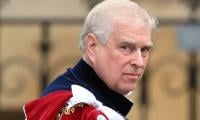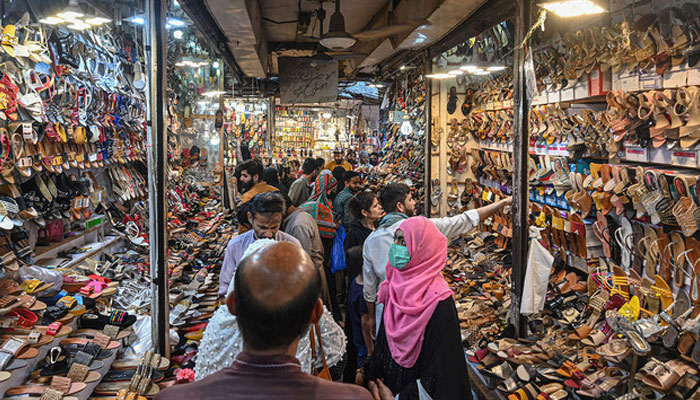Business confidence improves by 9% in OICCI survey
KARACHI: Business confidence in Pakistan improved significantly by 9.0 per cent to negative 5.0 per cent in October-November 2024, compared to negative 14 per cent in March-April 2024, according to the results of the Overseas Investors Chamber of Commerce and Industry’s (OICCI) Business Confidence Index (BCI) Survey - Wave 26.
The improvement in sentiment is attributed to positive economic growth, a stable exchange rate and a notable decline in inflation. The services sector led the recovery, improving from negative 14 per cent to positive 2.0 per cent, followed by the manufacturing sector, which rose from negative 15 per cent to negative 3.0 per cent. However, the retail/wholesale sector registered a decline, dropping from negative 15 per cent to negative 18 per cent.
Commenting on the findings, OICCI President Yousaf Hussain said that the improvement reflects a more optimistic economic outlook and the resilience of the country’s business environment despite ongoing challenges.
“The government’s bold confidence-building measures, in compliance with the IMF’s Extended Fund Facility (EFF), have translated into an improved country risk rating by international agencies and a boost in foreign exchange reserves. These steps have maintained exchange rate stability and kept inflation at record lows, collectively fostering a positive business environment,” he said.
Hussain also highlighted ongoing challenges, including rising costs, particularly energy prices, high taxation and policy inconsistencies, which he stressed must be proactively managed. “Deeper engagement between policymakers and the industry will enable Pakistan to further enhance business confidence, attract local and foreign investment, and boost job creation,” he added.
The survey highlighted increased optimism for the next six months, with 43 per cent of respondents expressing positive expectations, up from 34 per cent in the previous wave. Key contributors to this outlook include global market growth, better government policies, declining inflation, improved law-and-order conditions and economic growth.
OICCI Secretary General M Abdul Aleem noted that the Wave 26 feedback reflects cautious optimism, with significant gains in the services and manufacturing sectors. However, he expressed concern over new investment plans, which remained negative at 23 per cent, compared to negative 12 per cent in Wave 25. “This is an area that needs urgent attention to stimulate economic growth and employment,” he said.
Despite the positive trend, 66 per cent of respondents reported a negative outlook on business conditions over the past six months, an improvement from 76 per cent in Wave 25. Persistent challenges include high inflation, political instability, rising fuel prices and ineffective trade policies.
The BCI of foreign investors, including OICCI members randomly participating in the survey showed a healthy increase to positive 6.0 per cent from negative 4.0 per cent in Wave 25. This improvement was driven by a better global business climate and an improved industry environment in Pakistan over the past six months.
The OICCI BCI survey, conducted periodically, gathers feedback from key business stakeholders representing nearly 80 per cent of Pakistan’s GDP. Respondents include 41 per cent from the manufacturing sector, 35 per cent from the services sector, and 24 per cent from the retail/wholesale sector, covering regional, national, sectoral, and business entity levels.
Aleem stressed that while the improvement in business confidence is encouraging, actionable steps are essential to sustain the momentum. “We are optimistic that key stakeholders will thoroughly analyse the BCI 26 feedback and implement timely, consistent, and transparent policies focused on easing business operations. This will accelerate economic growth, investment, exports and employment,” he concluded.
-
 Demi Lovato Leaves Fans Disappointed With Unexpected Announcement
Demi Lovato Leaves Fans Disappointed With Unexpected Announcement -
 Pacers Vs Knicks Overtime Thriller Ends In Heartbreak For New York
Pacers Vs Knicks Overtime Thriller Ends In Heartbreak For New York -
 Who Owns The Ambassador Bridge? New Report Links Owner Matthew Moroun To Trump’s Threat
Who Owns The Ambassador Bridge? New Report Links Owner Matthew Moroun To Trump’s Threat -
 ICE Detention Center Plan Sparks Controversy In Maryland As Lawmakers Push Back
ICE Detention Center Plan Sparks Controversy In Maryland As Lawmakers Push Back -
 Blood Pressure Medication Recalled After Wrong Tablets Found In Bottles
Blood Pressure Medication Recalled After Wrong Tablets Found In Bottles -
 Why Ariana Grande Wants A 'tiny Mouse' To Play Her In Biopic?
Why Ariana Grande Wants A 'tiny Mouse' To Play Her In Biopic? -
 Wind Chill Returns With Brutal Cold As Polar Vortex Stalls Over Canada
Wind Chill Returns With Brutal Cold As Polar Vortex Stalls Over Canada -
 Princess Beatrice, Eugenie ‘do Not Want To Be Seen In Public’ Because Of Dad
Princess Beatrice, Eugenie ‘do Not Want To Be Seen In Public’ Because Of Dad -
 Costco $20 Rule Explained As Employee Pay Climbs Across North America
Costco $20 Rule Explained As Employee Pay Climbs Across North America -
 Strange Incident Happened At Nancy Guthrie's Home On Abduction's 10th Day
Strange Incident Happened At Nancy Guthrie's Home On Abduction's 10th Day -
 Tumbler Ridge School Lockdown Underway As RCMP Investigate School Shooting
Tumbler Ridge School Lockdown Underway As RCMP Investigate School Shooting -
 Royal Family Knows There Can Be ‘no More Glossing’ Of Andrew Downfall
Royal Family Knows There Can Be ‘no More Glossing’ Of Andrew Downfall -
 Britney Spears Quietly Parts Ways With Her Music Catalog: Report
Britney Spears Quietly Parts Ways With Her Music Catalog: Report -
 Princess Diana Bodyguard Suspected ‘she Could Die’: Here’s How
Princess Diana Bodyguard Suspected ‘she Could Die’: Here’s How -
 Teddi Mellencamp Marks Huge Milestone With Emotional Message Amid Cancer
Teddi Mellencamp Marks Huge Milestone With Emotional Message Amid Cancer -
 Shamed Andrew To ‘kiss And Tell’ After Dip In Popularity
Shamed Andrew To ‘kiss And Tell’ After Dip In Popularity




